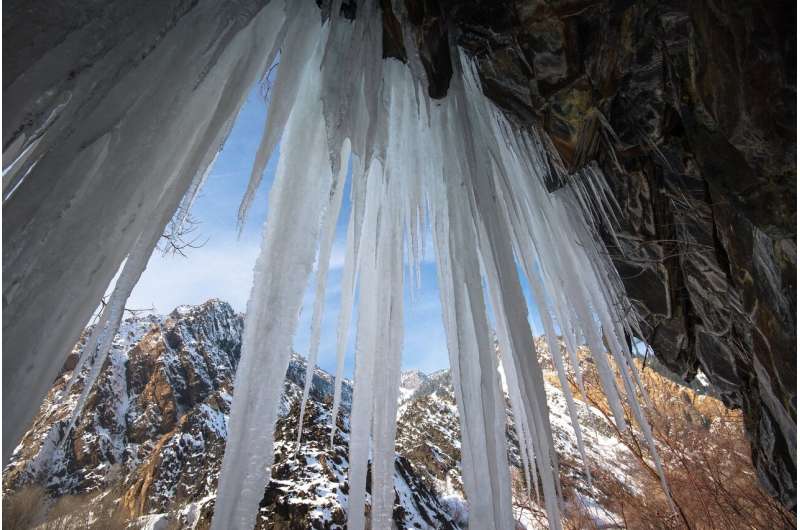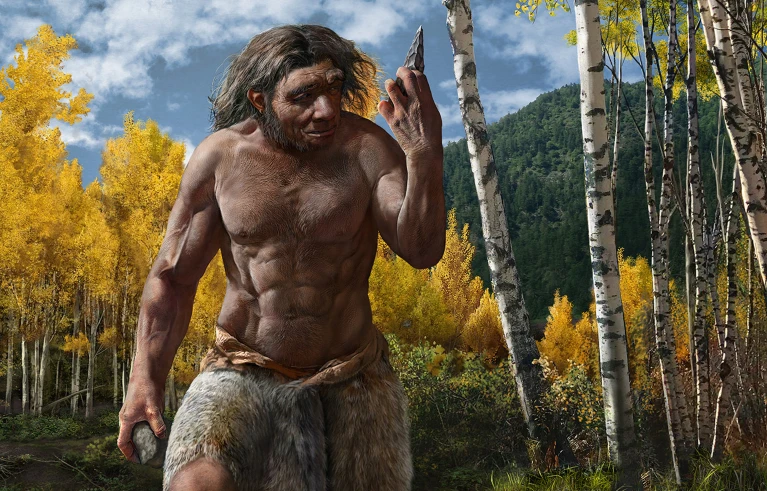Humans news stories

A new study analyzes stone tools from the cave that date to about 19,000 to 18,000 years ago, and discusses how the techniques used to make them hint at the ways that prehistoric people traveled, interacted, and shared their craft.

Ketamine leads to increased communication between areas of the brain that don’t typically engage with each other, new research suggests.

A new study supports the 2021 findings—this time relying on ancient mud to radiocarbon date the footprints, not seeds and pollen, and an independent lab to make the analysis. The paper was published in the journal Science Advances.

One of the latest developments is a recent study from the University of Michigan, published in the journal Science Advances. It proposes that Neanderthals went extinct for astrophysical reasons.

A prominent brow ridge with a brain as large as modern humans and Neanderthals — that’s what the archaic human group, the Denisovans, looked like, according to work published this week in Cell and Science.

A major new study led by Dr Aurélie Manin from the School of Archaeology at the University of Oxford has traced the incredible journey of humankind’s best friend across the Americas, showing how dogs slowly spread southward alongside early farming societies – mirroring the rhythms of human migration, agriculture and cultural change.
A small pilot study published in the journal Psychedelic Medicine suggests that psilocybin-assisted psychotherapy might help reduce depressive symptoms in people with bipolar II disorder who have not responded to conventional treatments.

Looking around, you could easily assume this cold and barren high country was too difficult for people to spend time in. But our new research, published today in Nature Human Behaviour, indicates Dargan Shelter was occupied as early as the last Ice Age and repeatedly visited during this cold period.

This rare find, dating back to a 5,300- to 4,150-year-old mega-village, is the first of its kind ever recorded in Late Prehistoric Iberia, according to findings published in PLOS One.
A new study published in the Journal of Psychopharmacology suggests that a single high dose of psilocybin, combined with psychological support, can lead to reductions in alcohol use among people with severe alcohol use disorder.
A new paper, published in Physical Review D (full preprint here), proposes a striking alternative. Their calculations suggest the Big Bang was not the start of everything, but rather the outcome of a gravitational crunch or collapse that formed a very massive black hole—followed by a bounce inside it.

A recent study by Dr. Gino Caspari revisits early interpretations of Xiaohe burial practices, highlighting the importance of considering them within the broader cultural and environmental contexts. “The funerary ritual is completely different from the surrounding cultures, and that is part of the fascination of this culture.”
A new study published in Psychology of Religion and Spirituality explores how psychedelic experiences relate to people’s spiritual struggles. Some participants associated their experiences with a sense of spiritual growth, while others described feelings of disconnection or confusion. The findings suggest that psychedelics may be associated with both the intensification and resolution of spiritual conflict, depending on individual differences and the nature of the experience
Analysis of 8,000-year-old teeth has revealed how pigs were first domesticated from wild boars in what is today South China. The new study was published in the Proceedings of the National Academy of Sciences.

An asteroid that burst onto the scene with an unusually high risk of striking Earth has just had its collision risk upgraded…Now its collision risk has risen to 4.3 percent – not with Earth, but the Moon.

Recent scholarship has concluded that Neanderthals made a second major migration from Eastern Europe to Central and Eastern Eurasia between 120,000 and 60,000 years ago. But the routes they took have long been a mystery—primarily because there are few archaeological sites connecting the two regions. The research, which appears in the journal PLOS One.








